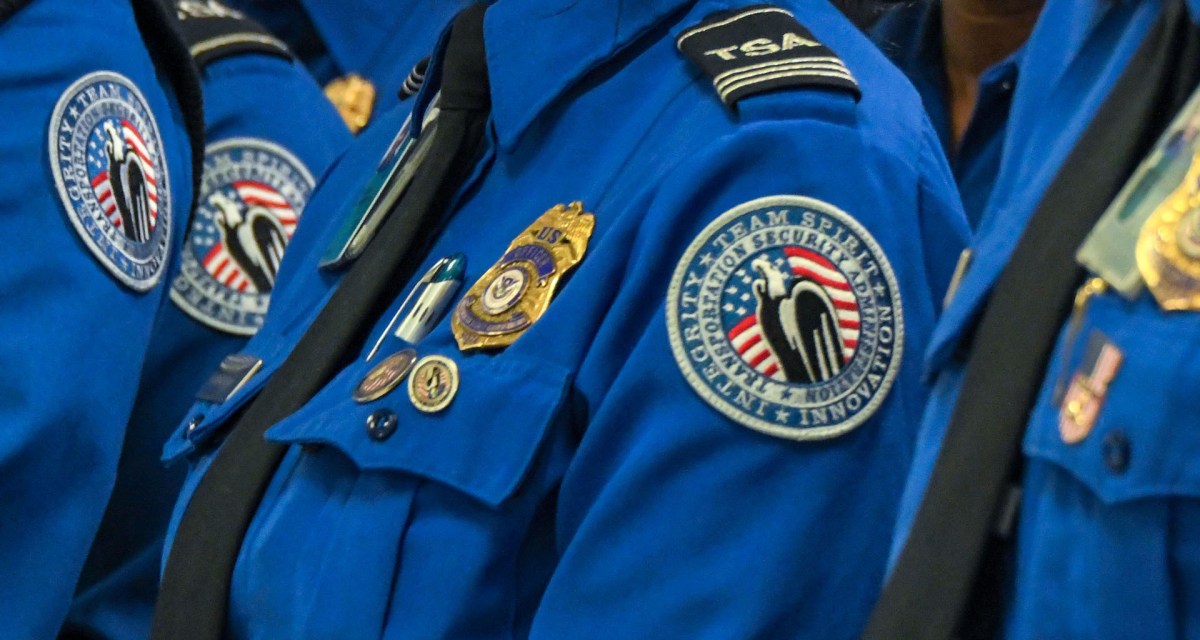As TSA PreCheck enrollments surge, data shows complaints have followed

Complaints about the Transportation Security Administration’s PreCheck program, the popular expedited passenger screening system, have more than tripled since 2015, according to newly released data from an organization focused on obtaining government datasets and making them more accessible.
That surge — from more than 2,500 in January 2015 to more than 8,500 in January of this year — is a notable increase, given that the number of passengers with TSA PreCheck who passed through the security checkpoint have only grown by 25% from 2015 to last year, according to separate data provided by the TSA to FedScoop. The metrics reflect a broader surge in complaints about the agency that were assembled from PDFs into data files by the Data Liberation Project, which recently digitized documents related to traveler complaints uploaded by the TSA to its online repository of Freedom of Information Act documents.
“The TSA PreCheck program continues to be the premier trusted traveler program and has experienced significant growth since 2015. Total enrollments have surged by around 800%, from less than 2 million at the end of 2015 to 18 million at the end of 2023,” a spokesperson for the agency told FedScoop in response to questions about the data. “As the program continues to grow and new travelers begin using the program, we expect to experience an increased volume in queries. To enhance options for TSA PreCheck members, TSA has increased promotion of available customer service alternatives.”
The spokesperson said that changes to several platforms and customer service tools are responsible for the rise in complaints. In May 2021, the agency created a new TSA PreCheck webform that saw complaints increase around 79% in the following four months. That August, the agency deployed messaging enhancements that, in combination with the new online form, saw complaints grow by 62% in the subsequent four months. (Switching to Salesforce for the TSA Contact Center at the end of 2020 also meant that the airport field in the data started to populate).
After publication of this story, a different TSA spokesperson said the jump in complaints can also be attributed to the fact that in 2015, many travelers that received expedited screening were “rules-based” as opposed to being enrolled in or paying for PreCheck. With “little expectation they would receive” the benefit, those “rules-based passengers were not likely to contact TSA to complain,” the spokesperson said. Now, there are roughly 36 million travelers eligible to use TSA PreCheck and the agency has taken steps to make registering complaints easier, the spokesperson added.
The data collected by the Data Liberation Project, and then analyzed by FedScoop, reflect complaints about the expedited passenger screening program, which the TSA refers to as PreCheck. Complaints within this category can also include specific concerns from active-duty military members, about TSA PreCheck applications, and regarding expedited screening for Department of Homeland Security employees. The second TSA spokesperson said 85.1% of individuals “contact TSA because they do not receive TSA PreCheck on their boarding pass.”
In the past, the TSA has suggested that complaints, which are aggregated by the Department of Transportation’s Office of Aviation Consumer Protection, are preventable issues related to passengers, such as people not checking their documentation correctly.
Meanwhile, the Data Liberation Project is also calling on the DHS component to make the dataset more accessible. The project’s director, Jeremy Singer-Vine, said that among other formatting challenges, the PDF form in which the TSA data is published can prevent deeper analysis. To deal with the problem, the DLP developed custom software to read through those documents.
“All the data were trapped in PDFs, a format that (unlike standard spreadsheets) allows for no sorting, filtering, or analysis,” Singer-Vine told FedScoop in an email. “Worse, the reports use a deeply idiosyncratic layout, which meant the public couldn’t accurately copy-paste the text in the PDF into a spreadsheet. Without the ability to analyze the complaint counts, what value do the PDFs actually provide to the public?”
This story was updated March, 28, 2024, with comments from a second TSA spokesperson.






